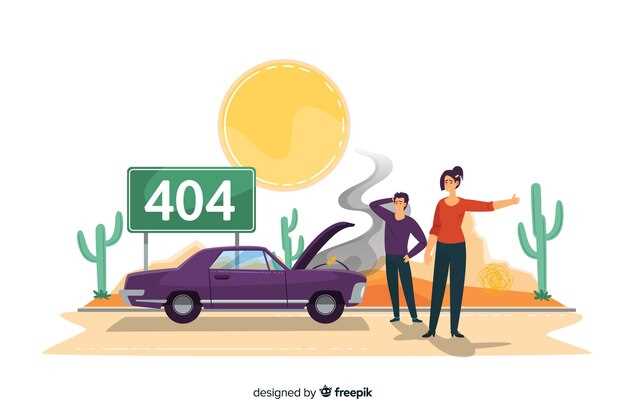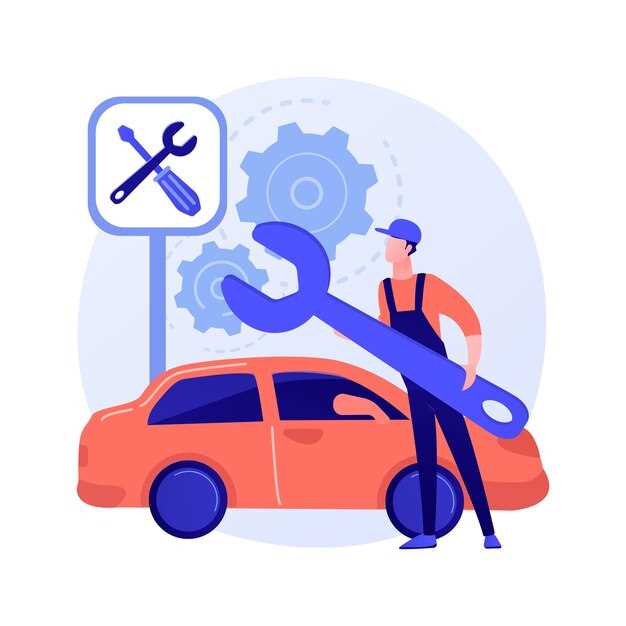Signs Your Hybrid Car Needs Immediate Repairs

Hybrid vehicles combine the efficiency of electric motors with the familiar power of gasoline engines, offering a unique driving experience. However, like all automobiles, they are not immune to issues that can arise over time. Recognizing the signs that your hybrid car needs immediate repairs can save you from costly breakdowns and ensure your vehicle operates at its optimal level.
Understanding the specific indicators of a malfunctioning hybrid car is essential for maintaining its performance and longevity. Warning lights, unusual noises, and changes in fuel efficiency are some of the common signals that should not be ignored. By paying attention to these signs, you can address potential issues before they escalate into more significant problems.
Additionally, it’s crucial to be aware of the unique components of hybrid vehicles, such as the battery and regenerative braking system. These systems require specialized knowledge and care, making early detection of faults even more vital. In this article, we will explore the critical signs that indicate your hybrid car may require immediate attention and repair.
Unusual Warning Lights on the Dashboard
Hybrid cars are equipped with advanced technology, and their dashboards provide crucial information about the vehicle’s condition. When unusual warning lights appear, it’s essential to address them immediately, as they often indicate significant issues. Ignoring these lights can lead to severe damage or unsafe driving conditions.
The check engine light is a common warning that can signal various problems, including issues with the hybrid battery or fuel system. If this light illuminates, it’s advisable to have a diagnostic check performed to identify the underlying issue.
Another critical light is the battery warning indicator. This light typically signifies that the hybrid battery is not charging correctly or has reached a low state of charge. Prompt attention is required to avoid becoming stranded or experiencing decreased vehicle performance.
The coolant temperature warning light is crucial for preventing engine overheating. If this light illuminates, it indicates that the engine coolant is at an unsafe level, warranting immediate investigation to prevent engine damage.
The traction control warning light may activate if the system detects a loss of traction. This could be due to slippery road conditions or an issue with the hybrid’s stability control system. It’s important to check the vehicle’s handling characteristics when this light appears.
Lastly, the brake warning light can indicate issues with the braking system, including low brake fluid or problems with the anti-lock braking system (ABS). This light should never be ignored, as it directly affects the vehicle’s safety.
If you notice any of these unusual warning lights on your dashboard, seek professional assistance without delay to ensure your hybrid car remains in optimal working condition.
Decreased Fuel Efficiency and Performance
One of the most noticeable signs that your hybrid car may need immediate repairs is a significant drop in fuel efficiency. If you find yourself making more frequent trips to the gas station without changing your driving habits, it’s time to investigate further. Hybrids are designed to provide excellent fuel economy, and any deviation from this norm could indicate an underlying issue.
Several factors can contribute to decreased fuel efficiency. A malfunctioning battery, which is crucial for the hybrid system, can lead to the gasoline engine working harder and burning more fuel. Regularly check the health of your hybrid battery, as deterioration can significantly impact overall performance.
Additionally, issues with the vehicle’s electric motor or the regenerative braking system can affect fuel consumption. If the electric motor is not functioning optimally, it may not assist the gasoline engine as intended, resulting in decreased power and efficiency.
Another important aspect to consider is tire condition and inflation. Under-inflated or worn tires can increase rolling resistance, causing the engine to work harder than necessary. Ensure that your tires are properly inflated and in good condition to maximize fuel efficiency.
A clogged air filter or a faulty fuel injector can also contribute to poor performance. A clean air filter ensures proper airflow to the engine, while a functional fuel injector delivers the right amount of fuel for optimal combustion. Regular maintenance of these components is essential to keep your hybrid running smoothly.
If you’ve noticed a decline in your hybrid’s fuel efficiency and performance, it is advisable to seek a professional diagnostic to identify and address the root cause. Prompt action can help prevent further damage and restore your vehicle’s efficiency and reliability.
Strange Noises During Operation
If you begin to hear unusual sounds coming from your hybrid car, it may indicate a serious problem that requires immediate attention. Common noises that warrant concern include grinding, squeaking, or rattling. Grinding noises might suggest that the brake pads are worn down and need replacement, as they can damage the rotors if not addressed. Squeaking sounds could indicate a need for lubrication in the brake system or potential issues with the suspension components.
Rattling noises, especially when accelerating or driving over bumps, can point to loose parts or worn-out belts that may lead to greater mechanical failure. If you hear a whirring or humming noise, it might be related to the hybrid battery system or electric motor, signaling that the vehicle’s hybrid components could be malfunctioning.
Paying attention to these distinct sounds can help you identify problems early, potentially saving you time and money on extensive repairs. It’s essential to consult a qualified technician if you experience any of these noises to diagnose and fix the issues promptly.
Overheating or Temperature Fluctuations
Overheating or persistent temperature fluctuations in your hybrid car can indicate serious underlying issues that require immediate attention. It is essential to monitor the temperature gauge and recognize the signs that may point to potential problems.
Common causes of overheating include a malfunctioning cooling system, low coolant levels, or a failing thermostat. Additionally, an issue with the hybrid battery or electric motor can also affect the overall temperature management of the vehicle.
If you notice your temperature gauge moving towards the red zone, it is crucial to take action. Pull over safely, turn off the engine, and check for any visible leaks or abnormal smells. Continuing to drive an overheated vehicle can result in severe engine damage and costly repairs.
Below is a table summarizing the common signs and associated issues related to overheating.
| Signs of Overheating | Possible Causes |
|---|---|
| Temperature gauge in the red zone | Low coolant, failing thermostat, blocked radiator |
| Steam or vapor from the engine | Coolant boiling, HVAC issues, hose leaks |
| Unusual engine noises | Overheating components, worn bearings |
| Warning lights on the dashboard | Faulty sensors, electrical problems |
| Reduced engine performance | Engine management issues, overheating components |
If your hybrid car displays any of these symptoms, it is advisable to seek professional assistance as soon as possible to prevent further damage and ensure safe driving conditions.
Frequent Engine Stalling or Hesitation
Frequent engine stalling or hesitation is a critical issue that signifies potential problems in your hybrid vehicle. This symptom can manifest during acceleration, deceleration, or when idling, making it not only inconvenient but also dangerous. Ignoring these signs may lead to more severe mechanical failures and safety risks.
Common Causes: Several factors can contribute to engine stalling or hesitation in hybrid cars. A malfunctioning hybrid battery, for example, may not provide sufficient power to support the engine’s operation effectively. Additionally, issues with the fuel system, such as a clogged fuel filter or failing fuel pump, can restrict fuel flow, resulting in hesitation.
Another potential cause is an issue with the ignition system. Worn spark plugs or failing ignition coils can disrupt the ignition process, leading to rough engine performance. Lastly, issues related to the vehicle’s sensors, such as the throttle position sensor or mass airflow sensor, can send incorrect data to the engine control unit, resulting in power fluctuations.
Immediate Actions: If you experience engine stalling or hesitation, it is vital to seek professional diagnosis as soon as possible. Ignoring these symptoms can cause further damage and lead to costly repairs. A certified technician will perform a thorough inspection to identify underlying issues and recommend appropriate repairs to restore your vehicle’s performance.
Regular maintenance checks can help prevent engine stalling and hesitation. Ensure that your hybrid car undergoes routine inspections, including battery health checks, fuel system cleaning, and electrical system diagnostics. Staying proactive can save you from significant headaches and expenses down the road.
Battery Charge Levels Dropping Rapidly

Rapidly declining battery charge levels in a hybrid car can indicate serious underlying issues that require immediate attention. Here are some signs and implications of this problem:
- The vehicle’s battery charge does not hold for the expected duration, resulting in frequent recharging.
- Dashboard warning lights, particularly those that indicate battery or hybrid system issues, may illuminate.
- The car might display decreased electric motor performance, leading to less acceleration and sluggish response.
- Unusual noises or heating can occur when the battery is charging or discharging.
Several factors can contribute to this problem:
- Aging Battery: Hybrid batteries have a limited lifespan. Over time, their capacity diminishes, causing quicker discharges.
- Faulty Battery Management System: The system that regulates charge and discharge patterns may malfunction, leading to erratic behavior.
- Environmental Factors: Extreme temperatures can negatively affect battery performance and, consequently, charge retention.
- Electrical Drain: Additional electrical accessories or components might be draining the battery faster than normal.
If you’re experiencing rapid drops in battery charge, consider the following actions:
- Monitor your driving patterns to identify if specific conditions contribute to the issue.
- Visit a qualified technician for a thorough battery health assessment and diagnostics.
- Inspect any aftermarket electronic accessories that may be causing excessive drain.
- Evaluate your vehicle’s charging system to ensure it’s functioning properly.
Addressing these issues promptly can help prolong the lifespan of your hybrid car’s battery and ensure optimal performance.

